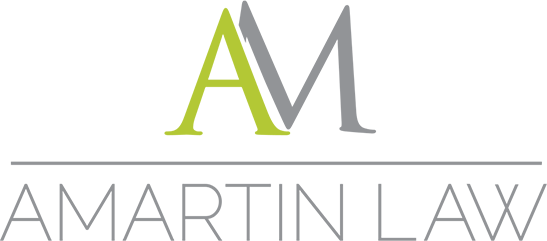Starting some time in 2016, or as of January 1, 2017, there are almost two dozen new laws that impact California employers. Brief summaries of those laws are contained in this article. (They are listed by Assembly Bill (AB) and Senate Bill (SB), in numerical order.)
ABX2-7 – Expanded Smoking Bans in the Workplace (Effective June 9, 2016)
California law already prohibits smoking in the workplace. This bill expands those prohibitions and eliminates some exceptions to the ban. Prior to this bill, hotel lobbies, bars, taverns, gaming clubs and warehouse facilities were not considered “places of employment,” so smoking was permitted. ABX2-7 generally designates these areas as places of employment and smoking is now banned. Seven limited exceptions to this remain and are not included in the definition of place of employment. They are: (1) 20% of the guest room accommodations in a hotel, motel, or similar transient lodging establishment; (2) Retail or wholesale tobacco shops and private smokers’ lounges; (3) cabs of motor trucks; (4) theatrical production sites, if smoking is an integral part of the story in the theatrical production; (5) medical research or treatment sites, if smoking is integral to the research and treatment being conducted; (6) private residences, except for licensed family day care homes; and (7) patient smoking areas in long-term health care facilities.
ABX2-7 also expands the smoking ban to all enclosed places of employment to all employers of any size, including a place of employment where the owner-operator is the only employee. The bill defines “Enclosed space” to include “covered parking lots, lobbies, lounges, waiting areas, elevators, stairwells, and restrooms that are a structural part of the building.” Lastly, the bill includes a ban on the use of any e-cigarettes and vaping devices that contain nicotine.
AB908 – Paid Family Leave (Operative January 1, 2018)
The purpose of Paid Family Leave is to provide short-term benefits to eligible employees for wages lost when they take time off of work to care for a serious ill family member or to bond with a new family member. AB908 provides for a new formula to determine benefits for those employees, starting in 2018. It would raise the current 55% disability wage level to either 60% or 70%. AB908 also removes the existing 7-day waiting period for paid family leave benefits.
AB1066 – Wages, Hours, and Working Conditions for Agricultural Workers (Effective January 1, 2017)
AB1066 is a gradually phased-in increase of overtime wages for agricultural employees. The phase in commences in 2019 and continues until 2022. Currently, agricultural workers do not receive overtime pay until they work more than ten hours in a day. Then they are paid time and a half. Beginning in January, 2019, this number will be reduced by a half-hour per day each year, until the number reaches eight hours in 2022. (This also applies to full work weeks, where overtime will kick in five hours sooner, commencing in 2019, until overtime is paid for work exceeding 40 hours in a week.) AB1066 also requires agricultural workers to be paid twice their hourly rate for all work in excess of 12 hours in a single day.
AB1311: Weekly Pay Required for Security Guards Employment by Private Patrol Operators
AB1311 generally requires temporary services employers to pay registered security officer employees at least once a week, regardless of when the assignment changes. The bill states that covered security guards must be paid their wages for the workweek no later than the regular payday of the following workweek. (A prior California Court decision found that this pay requirement did no apply to security guards, and this bill was meant to address that decision.)
AB1676 & SB1063 – Wage Discrimination and Application to Race and Ethnicity (Effective January 1, 2017)
In January, 2016, the Fair Pay Act took effect. It generally prohibits an employer from paying an employee at wage rates less than the rates paid to employees of the opposite sex in the same establishment for equal work on jobs the performance of which requires equal skill, effort, and responsibility, and which are performed under similar working conditions. (The Act included some exceptions, such as when the wage disparity is based on: (1) a seniority system; (2) a merit system; (3) a system that measures earnings by quantity or quality of production; (4) a bona fide factor other than sex, such as education, training, or experience. AB1676 amends the Fair Pay Act, by providing that employee’s prior salary cannot, by itself, justify any disparity in compensation under the bona fide factors above. The rationale behind this amendment was, at least in part, an attempt to remove one more barrier to wage equality.
SB1063 expands the requirements of the Fair Pay Act to include employees’ race or ethnicity, and not just gender. SB1063 requires that an employer affirmatively demonstrate that wage differentials are based on lawful, nondiscriminatory factors such as: (1) a seniority system; (2) a merit system; (3) a system that measures earnings by quantity or quality of production; or (4) a bona fide factor other than race or ethnicity.
AB1732 – Single-User Restrooms (Effective March 1, 2017)
AB1732 requires all single-user toilet facilities in any business establishment, place of public accommodation, or government agency to be identified as all-gender toilet facilities. AB1732 also authorizes inspectors, building officials, or other local officials responsible for code enforcement to inspect for compliance with these provisions during any inspection.
AB1843 – Criminal History in Applications for Employment (Effective January 1, 2017)
AB1843 expands the prohibitions on what a potential employer can or cannot ask an applicant about his or her criminal history. This bill prohibits potential employers from asking applicants to disclose, or from utilizing as a factor in determining any condition of employment, information concerning or related to “an arrest, detention, process, diversion, supervision, adjudication, or court disposition that occurred while the person was subject to the process and jurisdiction of juvenile court law.” The bill’s definition of conviction does not include, “any adjudication by a juvenile court or any other court order or action taken with respect to a person who is under the process and jurisdiction of the juvenile court law.”
AB2337 – Employment Protections for Victims of Domestic Violence, Sexual Assault, or Stalking (Effective July 1, 2017)
Current law prevents an employer from discharging, terminating, or in any way retaliating against an employee who is the victim of stalking, domestic violence or sexual assault and takes time off specifically related to their status as a victim. If this occurs, the employee is entitled to reinstatement and reimbursement for lost wages and work benefits caused by the acts of the employer, as well as appropriate equitable relief. AB2337 requires employers with 25 or more employees to provide specific information in writing to new employees upon hire and to other employees (upon request) of their rights to take leave as a victim of stalking, domestic violence or sexual assault. AB2337 instructs the Labor Commissioner to develop a form employers can use to comply with this bill. The Labor Commissioner is to develop this form and post it on the Commissioner’s website by July 1, 2017, at which time employers will be required to comply with this bill.
AB2535 – Itemized Wage Statements (Effective January 1, 2017)
The law currently requires employers to provide employees with accurate, itemized wage statements. AB2535 clarifies this law, and specifically indicates that this law does not apply to exempt employees. (An exempt employee is an employee who is exempt from the payment of minimum wage and overtime under the California Labor Code or other applicable Wage Orders promulgated by the Industrial Welfare Commission.)
SB1001 – Immigration Related Unfair Practices (Effective January 1, 2017)
Under current law, an employer is barred from engaging in, or directing another person to engage in, an unfair immigration-related practice against a person for the purpose of, or with the intent to, retaliate against any person for exercising a protected right. SB1001 amends this existing law. Specifically, the bill prohibits employers who are verifying a potential employee’s status from: requesting from the employee more documents or different documents than are required under federal law; refusing to honor documents tendered that, on their face, reasonably appear to be genuine; refusing to honor documents or work authorization based upon the specific status or term of status that accompanies the authorization to work; and/or investigating or re-verifying an incumbent employee’s authorization to work. An employer could be penalized up to $10,000 for violations of this bill.
SB1241 – Choice of Law and Forum in Employment Contracts (Effective January 1, 2017)
I previously wrote about this topic, which increases the minimum wage in California. http://www.law-and-beyond.com/2016/11/new-wage-laws-in-california/
SB1342 – Wage Law Enforcement Shared Between State and Local Agencies
SB 1342 is intended to give local wage enforcement programs the necessary tools to conduct successful wage claim investigations to recover unpaid back wages. It allows a city or county to delegate its administrative subpoena authority to city or county officials in order to investigate and enforce local laws or ordinances, including local wage laws.
Proposition 64 – Legalization of Recreational Marijuana
In November, 2016, California voters passed Proposition 64, legalizing the recreational use of marijuana for individuals over 21 years of age. However, Prop. 64 also makes clear that employers can continue to test workers for marijuana use before hiring them, or at any point during their employment if there is a reasonable suspicion of impairment. If employees test positive, Prop. 64 allows employers to terminate employees for marijuana use, even if there is no indication that they were actually impaired on the job.

